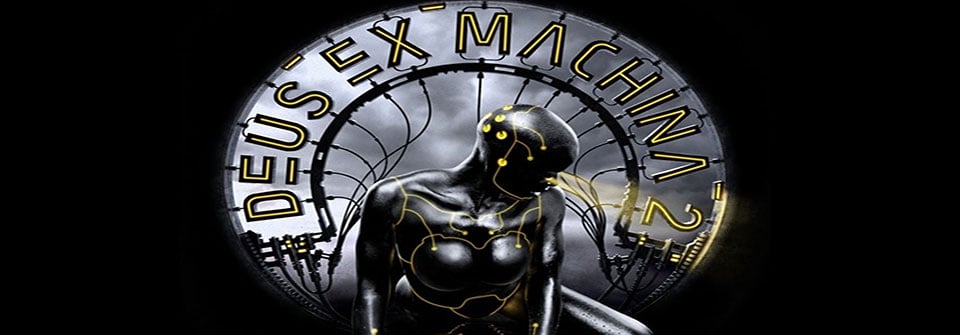

The computer agrees and stops the attack. The Sentinel army is about to destroy Zion when Neo travels to the Machine City (no pun intended, I’m sure) to ask the God-like computer for peace.
#Define deus ex machina movie
Think about the movie The Matrix Revolutions.

But seriously, sometimes writers get away with it However, that defeats the whole premise of deus ex machina, which is by its very nature a sudden and unexpected turn of events. Unless you set that bridge up earlier in your story. Nature, karma, the Divine Other-whatever you want to call the interfering power-if something other than your main character drops a bridge on the bad guy in the last seconds of your novel, your readers will huff and chuff.
#Define deus ex machina series
One of the worst deus ex machina devices used in literature and movies is the final scene that shows "it was all a dream." Think about a popular TV series where everything that happened over the course of a series was reversed at the end because "it was all a dream." We won’t name names, but it seriously rankled the viewing audience. So what’s a writer to do when she or he has painted the main character into an untenable situation? And you couldn’t think of a better way to get your main character out of their predicament.ĭo you believe in Divine Intervention? If you do, deus ex machina might work in books you read. What it does is tell your reader that the conflict was unsolvable or hopeless.

In no way, shape, or form does the appearance of a divine character who makes it all better contribute toward your character arc.ĭeus ex machina does not make your character grow and change, nor does it change the meaning or understanding of your story. It’s not something you can throw in to keep your readers from guessing how your main conflict culminates. Why? Because it’s inherently unsatisfying for readers. Most creative writing professors, agents, and publishers strongly recommend you not use deus ex machina to get your main character out of his or her predicament at the climax of your novel. In ancient Greek theater, a crane would lower actors or statues portraying a god or gods onto the stage to set things right. The term is Latin and means "god out of the machine." It refers to the circumstance where you introduce a divine character at the denouement to resolve a story’s conflict once and for all.


 0 kommentar(er)
0 kommentar(er)
